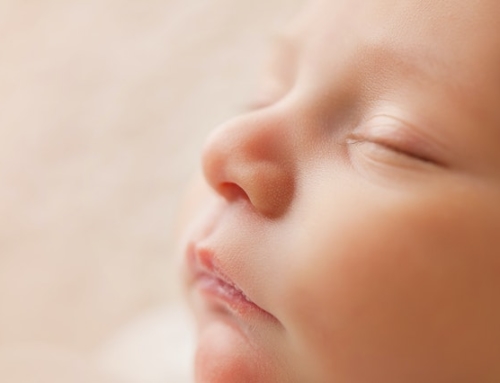
In other avenues I have written about how research does not support the need for sleep consolidation in infancy in order to facilitate cognitive growth. Yes, there are a few studies that are cross-sectional in nature (i.e., comparing different children at the same time point) which suggests a potential role, all longitudinal studies (i.e., those comparing the same children across time) do not suggest such a role. The most recent research in infancy came from Pennestri and colleagues (2018)[1] who found that 5- or 8-hour stretches of sleep in older infancy were not associated with infant development and thus the argument that children need more uninterrupted sleep for their own development failed to be supported. In fact, this uninterrupted sleep was also not associated with maternal mood and the only variable that differed between those who slept uninterrupted and those who didn’t was breastfeeding, with those who slept uninterrupted bouts less likely to be breastfeeding.
This is perhaps not so surprising given that the consolidation of nighttime sleep seems to be strongly driven by genetic factors and not hugely influenced by environmental ones (contrary to what most sleep trainers are pushing)[2]. If things are driven by biology, it doesn’t make a whole lot of sense for cognition to be so impacted.
But what about toddlers? As we get older, we tend to consider it a given that sleep has an impact on cognition with various experimental studies in older children (starting around age 6) and adults showing how important sleep is to our ability to learn and engage in cognitive tasks. In these studies, even a one-hour decrease in average overnight sleep can have negative impacts on a host of cognitive factors (e.g., [3]).
At what age does this really start to matter?
A recent study in Child Development explored this question using both a within-subjects longitudinal design and a between-subjects cross-sectional design[4]. The study examined close to 500 toddlers across ages 30, 36, and 42 months (2.5 to 3.5 years of age) as part of a larger series of studies on toddler development. The children were predominantly Caucasian (in line with the demographics of the location of the research) and predominantly middle-class, but not uniformly so. The measures of interest include actigraph data for sleep over a period of two weeks for each of the three assessment points and standardized cognitive assessments were given at each time point as well. Now, there was attrition at each point and thus not all kids had full data for each time point, but that is to be expected in longitudinal research. It’s worth noting the researchers were clear in their assumption that sleep would be related to cognitive abilities within each time point and across time points. There was also an assessment of socio-economic status in order to see how that affected the various measures.
The Findings
Does sleep affect cognition in toddlerhood? The short answer is no. The within-subject, longitudinal comparisons that were made found that sleep had virtually no effect on cognition over development. Not only that, but within each assessment point, the only measure that had any effect was bedtime and even that was tiny, accounting for no more than 4% of the variance in cognition. This means that if we look at the factors that would affect cognition, only 4% can be explained by bedtime and none of the other sleep measures (including total sleep time, number of wakings, or duration of wakings) had a significant effect.
There was, however, between-subject significance with children who, at the same time point, had more sleep did show greater cognitive scores. However, in line with the longitudinal research, when individual children got more sleep (or less) across development, the cognitive scores didn’t change significantly at all. That is, on an individual level, when children’s sleep was improved, it had no bearing on their cognition, but somehow the variables seemed to go together between children.
In line with their one statistically significant effect of bedtime, researchers tested a mediation model including socio-economic status and bedtime on cognition. Their mediation model was significant, but their theoretical model of mediation had bedtime mediating the effects of SES to cognitive outcomes which would imply the differences in cognition between children of different SES is really due to the differences in bedtime (with lower SES having later bedtimes). I personally would have argued it’s the effect of SES and bedtime may be one marker. Unfortunately they did not test the alternate mediation model, but as it’s based on covariance, likely the results would be significant too for the other mediation and that makes it a matter of theory over statistics. But again, the amount of variance was tiny.
All in all, it was nearly impossible to argue that most sleep variables in toddlerhood have a significant impact on the child’s cognitive development.
What Does This Mean?
The take-home here is that if your child isn’t consolidated sleep in toddlerhood and you’re facing pressure to sleep train out of helping their development, there really isn’t much water to that argument. Again, this paper comes on the heels of another that found the same thing in late infancy, so we can extend the period at which we worry about sleep consolidation to a later time indeed.
I must reiterate that of course we know sleep has an impact on cognition, but how that relationship works is something to explore. That is, I have always argued that you have to look to the child for signs of insufficient sleep as all people have different sleep needs. The same amount of sleep may be great for one child and not enough or too much for another. We must also remember that night wakings in the first three years are quite normal and not something to make parents paranoid about. Children wake and it’s not a reflection of any problem, but just a normal state of affairs from a biological perspective.
If you worry about your child’s sleep, take a look at how they are functioning to try and determine if you need to do something or if there may be a health concern to worry about. But a few wakings and maybe a bit of nursing back down? Nothing to stress over.
________________________________________
[1] Pennestri MH, Laganiere C, Bouvette-Turcot AA, et al. Uninterrupted infant sleep, development, and maternal mood. Pediatrics 2018; 142: e20174330.
[2] Touchette E, Dionne G, Forget-Dubois N, Petit D, Perusse D, et al. Genetic and environmental influences on daytime and nighttime sleep duration in early childhood. Pediatrics 2013; 131: e1874.
[3] Sadeh A, Gruber R, Raviv A. The effects of sleep restriction and extension on school-age children: what a difference an hour makes. Child Development 2003; 74: 444-455.
[4] Hoyniak CP, Bates JE, Staples AD, Rudasill KM, Molfese DL, Molfese VJ. Child sleep and socioeconomic context in the development of cognitive abilities in early childhood. Child Development 2019; 90: 1718-1737.






I appreciate this as my 18 month old still constantly wakes. Of course I worry about things like his brain development. But he was a little early and essentially never slept since day one, so it’s not shocking. I do wonder, though, how important is it to help him learn to fall asleep without the breast? It seems to me that he should be moving in this direction, but it’s really not happening. opinions? (and how might i encourage that/or is it even possible without a strict sleep training approach that people keep suggesting?)
Hi Nicole,
I don’t know why he’d need to move away from the breast except for your sake. My kids nursed to sleep for years so long as they were with me 🙂 (My 4 yo still will nurse down at night!) It’s very normal to breastfeed to sleep so I wouldn’t worry about that. Of course, you can start to facilitate other methods gently, depending on what you are aiming for. I cover this in my sleep course and have worked with many families on this type of sleep work so it’s not about sleep training at all!! 🙂